Kia Ceed Sportswagon vs Nissan Qashqai - Differences and prices compared
Compare performance (140 HP vs 205 HP), boot space and price (24300 £ vs 29600 £) at a glance. Find out which car is the better choice for you – Kia Ceed Sportswagon or Nissan Qashqai?
Costs and Efficiency:
Price and efficiency are often the first things buyers look at. Here it becomes clear which model has the long-term edge – whether at the pump, the plug, or in purchase price.
Kia Ceed Sportswagon has a distinct advantage in terms of price – it starts at 24300 £, while the Nissan Qashqai costs 29600 £. That’s a price difference of around 5271 £.
Fuel consumption also shows a difference: Nissan Qashqai manages with 4.50 L and is therefore evident more efficient than the Kia Ceed Sportswagon with 6 L. The difference is about 1.50 L per 100 km.
Engine and Performance:
Power, torque and acceleration say a lot about how a car feels on the road. This is where you see which model delivers more driving dynamics.
When it comes to engine power, the Nissan Qashqai has a clearly perceptible edge – offering 205 HP compared to 140 HP. That’s roughly 65 HP more horsepower.
In acceleration from 0 to 100 km/h, the Nissan Qashqai is distinct quicker – completing the sprint in 7.60 s, while the Kia Ceed Sportswagon takes 9.70 s. That’s about 2.10 s faster.
In terms of top speed, the Nissan Qashqai performs minimal better – reaching 206 km/h, while the Kia Ceed Sportswagon tops out at 197 km/h. The difference is around 9 km/h.
There’s also a difference in torque: Nissan Qashqai pulls evident stronger with 330 Nm compared to 253 Nm. That’s about 77 Nm difference.
Space and Everyday Use:
Cabin size, boot volume and payload all play a role in everyday practicality. Here, comfort and flexibility make the difference.
Both vehicles offer seating for 5 people.
In curb weight, Kia Ceed Sportswagon is hardly perceptible lighter – 1335 kg compared to 1420 kg. The difference is around 85 kg.
In terms of boot space, the Kia Ceed Sportswagon offers to a small extent more room – 625 L compared to 504 L. That’s a difference of about 121 L.
In maximum load capacity, the Kia Ceed Sportswagon performs minimal better – up to 1545 L, which is about 98 L more than the Nissan Qashqai.
When it comes to payload, Nissan Qashqai minimal takes the win – 520 kg compared to 485 kg. That’s a difference of about 35 kg.
Who comes out on top?
Overall, the Nissan Qashqai shows itself to be outperforms in nearly all aspects and secures the title of DriveDuel Champion.
It convinces with the more balanced overall package and proves to be the more versatile choice for everyday use.

Nissan Qashqai
Costs and Consumption
View detailed analysis
Engine and Performance
View detailed analysis
Dimensions and Body
View detailed analysis
Kia Ceed Sportswagon
The Kia Ceed Sportswagon is a sensible and surprisingly stylish family wagon that turns daily chores into a bit less of a grind. Practical, comfortable and packed with thoughtful touches where they matter, it’s a smart choice for buyers who want usefulness without sacrificing personality.
details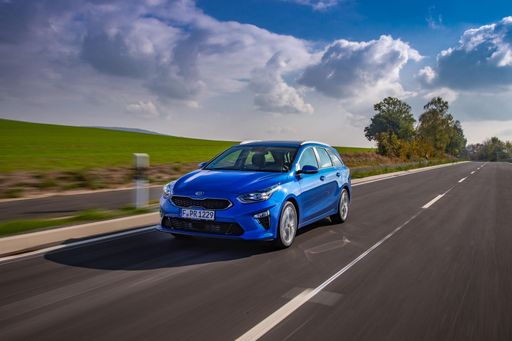
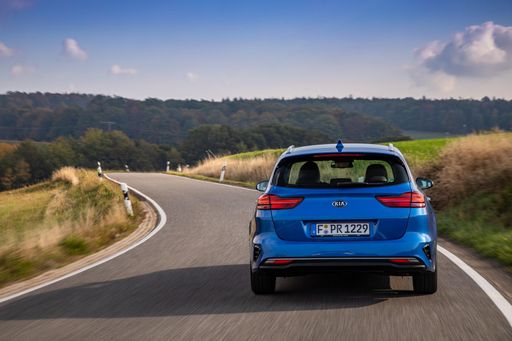
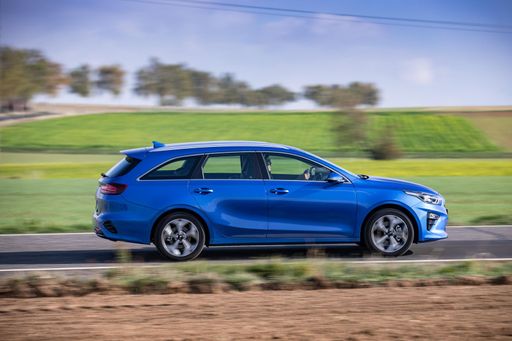
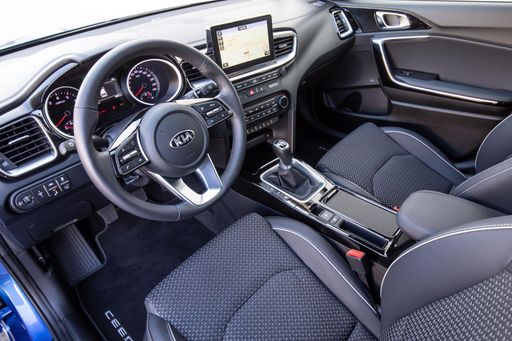
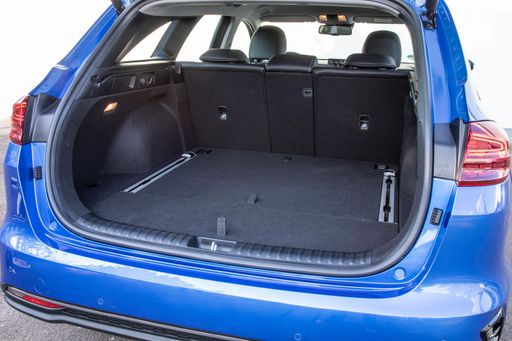
Nissan Qashqai
The Nissan Qashqai blends practical, family-friendly packaging with SUV styling that refuses to shout, making it a sensible and dependable choice for everyday life. It’s comfortable to live with, economical on the road, and neatly equipped enough to feel modern without ever feeling precious — perfect if you want crossover versatility without the drama.
details

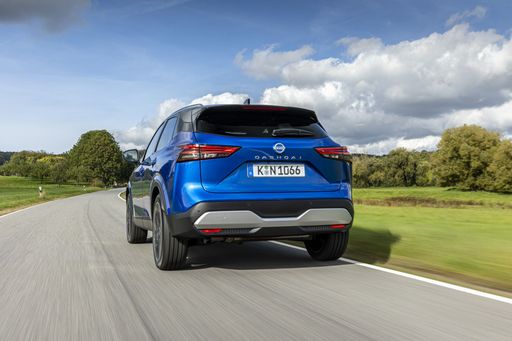


Costs and Consumption |
|
|---|---|
|
Price
24300 - 29100 £
|
Price
29600 - 39900 £
|
|
Consumption L/100km
6 - 6.4 L
|
Consumption L/100km
4.5 - 6.8 L
|
|
Consumption kWh/100km
-
|
Consumption kWh/100km
-
|
|
Electric Range
-
|
Electric Range
-
|
|
Battery Capacity
-
|
Battery Capacity
-
|
|
co2
137 - 146 g/km
|
co2
102 - 154 g/km
|
|
Fuel tank capacity
50 L
|
Fuel tank capacity
55 L
|
Dimensions and Body |
|
|---|---|
|
Body Type
Estate
|
Body Type
SUV
|
|
Seats
5
|
Seats
5
|
|
Doors
5
|
Doors
5
|
|
Curb weight
1335 - 1437 kg
|
Curb weight
1420 - 1665 kg
|
|
Trunk capacity
512 - 625 L
|
Trunk capacity
479 - 504 L
|
|
Length
4605 mm
|
Length
4425 mm
|
|
Width
1800 mm
|
Width
1835 mm
|
|
Height
1422 mm
|
Height
1625 mm
|
|
Max trunk capacity
1545 L
|
Max trunk capacity
1422 - 1447 L
|
|
Payload
455 - 485 kg
|
Payload
466 - 520 kg
|
Engine and Performance |
|
|---|---|
|
Engine Type
Petrol, Petrol MHEV
|
Engine Type
Petrol MHEV, Full Hybrid
|
|
Transmission
Automatic, Manuel
|
Transmission
Manuel, Automatic
|
|
Transmission Detail
Dual-Clutch Automatic, Manual Gearbox
|
Transmission Detail
Manual Gearbox, CVT, Reduction Gearbox
|
|
Drive Type
Front-Wheel Drive
|
Drive Type
Front-Wheel Drive, All-Wheel Drive
|
|
Power HP
100 - 140 HP
|
Power HP
140 - 205 HP
|
|
Acceleration 0-100km/h
9.7 - 13.5 s
|
Acceleration 0-100km/h
7.6 - 10.2 s
|
|
Max Speed
197 km/h
|
Max Speed
170 - 206 km/h
|
|
Torque
172 - 253 Nm
|
Torque
240 - 330 Nm
|
|
Number of Cylinders
3 - 4
|
Number of Cylinders
3 - 4
|
|
Power kW
74 - 103 kW
|
Power kW
103 - 151 kW
|
|
Engine capacity
998 - 1482 cm3
|
Engine capacity
1332 - 1498 cm3
|
General |
|
|---|---|
|
Model Year
2024
|
Model Year
2025
|
|
CO2 Efficiency Class
E
|
CO2 Efficiency Class
E, C
|
|
Brand
Kia
|
Brand
Nissan
|
Is the Kia Ceed Sportswagon offered with different drivetrains?
The Kia Ceed Sportswagon is available as Front-Wheel Drive.
The prices and data displayed are estimates based on German list prices and may vary by country. This information is not legally binding.




